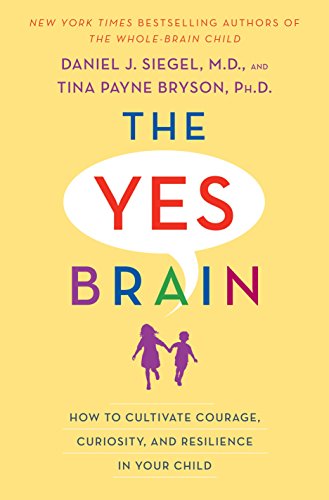The Yes Brain: How to Cultivate Courage, Curiosity, and Resilience in Your Child Link to heading
Summary Link to heading
“The Yes Brain: How to Cultivate Courage, Curiosity, and Resilience in Your Child” by Daniel J. Siegel and Tina Payne Bryson explores how parents can foster an encouraging and nurturing environment to help their children develop emotionally and intellectually. The authors introduce the concept of a “Yes Brain,” a mindset that promotes openness, adaptability, and positivity. Unlike the “No Brain,” which is characterized by fear, rigidity, and negativity, the Yes Brain empowers children to face challenges with courage and curiosity.
The book is structured around four core principles: balance, resilience, insight, and empathy. Siegel and Bryson offer practical strategies and examples for nurturing these attributes, aiming to help children become well-rounded individuals who can handle life’s demands creatively and confidently.
Review Link to heading
“The Yes Brain” is widely praised for translating complex neuroscience into accessible, actionable advice that can be easily applied by parents and caregivers. The book effectively balances scientific theory with practical application, making it a valuable resource for those seeking to enhance their parenting skills. One of its strengths lies in the engaging writing style of the authors, who use anecdotes, illustrations, and exercises to reinforce key topics.
A critique, however, could be the book’s broad approach, which might not address the nuances of every individual child’s needs and circumstances. Nevertheless, it offers a solid foundation of principles that can be adapted to various situations.
Key Takeaways Link to heading
- Yes Brain vs. No Brain: Encouraging a Yes Brain in children helps them face adversity with an open mind and a positive outlook.
- Balance: Teaching children emotional regulation allows them to maintain calm and stability in challenging situations.
- Resilience: Fostering resilience helps children recover from setbacks and develop perseverance.
- Insight: Encouraging self-awareness helps children understand their emotions and motivations better.
- Empathy: Cultivating empathy in children helps them connect with others and develop meaningful relationships.
- Practical Strategies: The authors provide exercises, scenarios, and tools for parents to implement these principles effectively.
Recommendation Link to heading
“The Yes Brain” is highly recommended for parents, educators, and caregivers who wish to cultivate a nurturing environment that empowers children to thrive. Its blend of neuroscience and practical advice makes it a valuable resource for anyone eager to support children’s emotional and cognitive development. Additionally, those interested in child psychology will find the book’s insights into brain science particularly enlightening and applicable.
